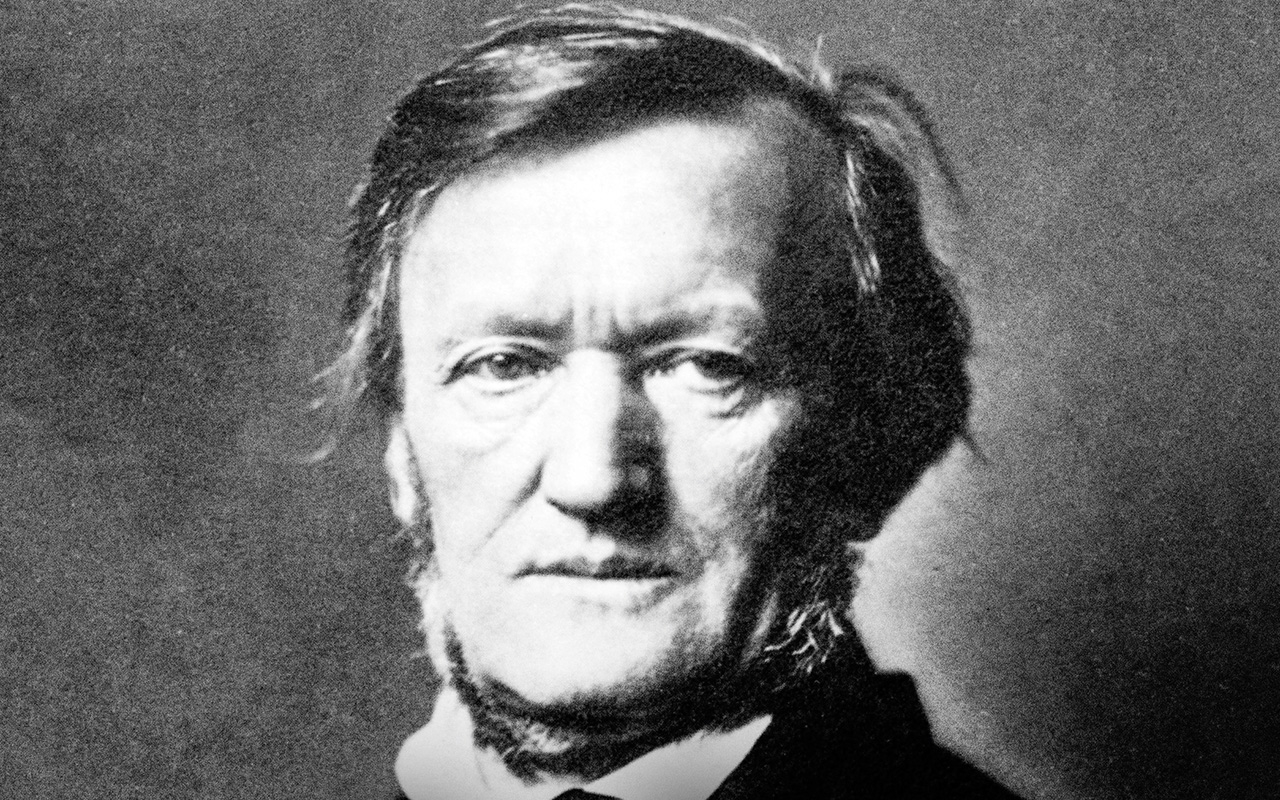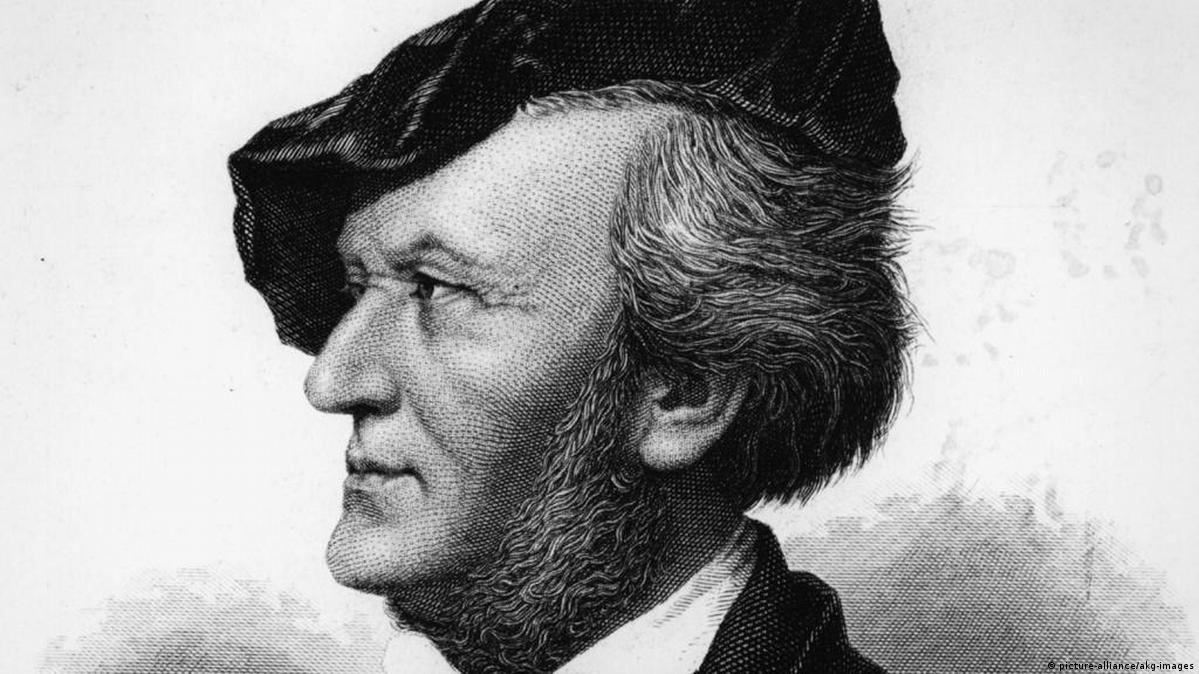Richard Wagner (1813-1883), a towering figure in the world of classical music, revolutionized opera through his innovative use of leitmotifs and orchestration. His works, characterized by complex musical and dramatic structures, have left an indelible mark on Western music. Here’s a look at Wagner’s ten greatest compositions, showcasing the breadth and depth of his genius.
Richard Wagner, one of the most influential composers in the history of classical music, was born on May 22, 1813, in Leipzig, Germany. He was the ninth child of Carl Friedrich Wagner, a police actuary, and Johanna Rosine Wagner. His childhood was marked by a turbulent family life, with his father's death when he was just six months old and his stepfather's subsequent death when he was seven.
Despite the challenges of his early years, Wagner showed an early aptitude for music. He began studying piano at the age of eight and composed his first opera, "Die Laune des Verliebten" ("The Infatuated Lover's Caprice"), at the age of 13. However, it wasn't until he reached his twenties that he began to seriously pursue a career in music.
Richard Wagner was a prominent composer of the 19th century, known for his influential contributions to opera and his complex, often controversial, personal and artistic life. Here are ten interesting facts about this iconic composer:
1. Early Musical Talent: Richard Wagner was born on May 22, 1813, in Leipzig, Germany. His musical talent was evident from a young age, as he began composing when he was just 7 years old.
Richard Wagner, a prominent German composer, conductor, and theater director of the 19th century, is widely regarded as one of the most influential figures in the history of classical music. Known for his grandiose operas and innovative musical techniques, Wagner's compositions continue to captivate audiences worldwide. In this blog post, we delve into the world of Wagnerian music and explore the 10 best songs that showcase his brilliance as a composer.
Richard Wagner, the renowned German composer, conductor, and theater director, left an indelible mark on the world of music with his monumental works and innovative artistic vision. However, beyond his musical genius, Wagner's life and personality were riddled with fascinating curiosities that add a layer of intrigue to his already captivating legacy. Join us on a journey as we explore some lesser-known aspects of Richard Wagner, shedding light on the enigmatic man behind the timeless compositions.
Richard Wagner's passion for music blossomed at an early age. Growing up in a theatrical family, he was exposed to the arts from the start. Although his father died when he was just a child, the young Wagner found solace in music, teaching himself to play the piano and composing his first pieces. His talent caught the attention of his family, and he received formal musical training at the Leipzig University and later at the Dresden University of the Arts.
Five Facts You Didn't Know About Wagner
Astonishingly, Richard Wagner showed little aptitude or enthusiasm for music as a child, and so was the only one of his siblings to not receive piano lessons. When he was just 13, though, he wrote a play entitled 'Leubald' that he insisted should be set to music - which is when he started music lessons.
#classicalmusic
#orchestra
#richardwagner
We are a educational channel specializing in history of classical music.
Our goal is to spread classical music to the greatest number of people.
Explore our channel and listen to more works by Mozart, Chopin, Beethoven, Tchaikovsky, Bach, Haydn, Schumann, Schubert, Vivaldi, Dvorak, Debussy and more! I hope you enjoy it and don't forget to Subscribe. 🎧
🔴 Facebook: https://www.facebook.com/TopClassicalMusic
🔴 WebSite: https://www.melhoresmusicasclassicas.com
How Did Wagner Revolutionize Opera?
Initially establishing his reputation as a composer of works in the romantic vein of Carl Maria von Weber and Giacomo Meyerbeer, Richard Wagner revolutionised opera through his concept of the Gesamtkunstwerk ("total work of art"), by which he sought to synthesise the poetic, visual, musical and dramatic arts, with music subsidiary to drama. He described this vision in a series of essays published between 1849 and 1852. Wagner realised these ideas most fully in the first half of the four-opera cycle Der Ring des Nibelungen.
#classicalmusic
#richardwagner
#orchestra
We are a educational channel specializing in history of classical music.
Our goal is to spread classical music to the greatest number of people.
Explore our channel and listen to more works by Mozart, Chopin, Beethoven, Tchaikovsky, Bach, Haydn, Schumann, Schubert, Vivaldi, Dvorak, Debussy and more! I hope you enjoy it and don't forget to Subscribe. 🎧
🔴 Facebook: https://www.facebook.com/TopClassicalMusic
🔴 WebSite: https://www.melhoresmusicasclassicas.com
Liszt - Wagner - Tristan and Isolde - Liebestod, S 447 - Music | History
Tristan und Isolde (Tristan and Isolde), WWV 90, is an opera in three acts by Richard Wagner to a German libretto by the composer, based largely on the 12th-century romance Tristan by Gottfried von Strassburg. It was composed between 1857 and 1859 and premiered at the Königliches Hof- und Nationaltheater in Munich on 10 June 1865 with Hans von Bülow conducting. Wagner referred to the work not as an opera, but called it "eine Handlung" (literally a drama, a plot or an action), which was the equivalent of the term used by the Spanish playwright Calderón for his dramas.
Wagner's composition of Tristan und Isolde was inspired by the philosophy of Arthur Schopenhauer (particularly The World as Will and Representation), as well as by Wagner's affair with Mathilde Wesendonck. Widely acknowledged as one of the peaks of the operatic repertoire, Tristan was notable for Wagner's unprecedented use of chromaticism, tonal ambiguity, orchestral colour and harmonic suspension.
The opera was enormously influential among Western classical composers and provided direct inspiration to composers such as Gustav Mahler, Richard Strauss, Karol Szymanowski, Alban Berg, Arnold Schoenberg and Benjamin Britten. Other composers like Claude Debussy, Maurice Ravel and Igor Stravinsky formulated their styles in contrast to Wagner's musical legacy. Many see Tristan as the beginning of the move away from common practice harmony and tonality and consider that it lays the groundwork for the direction of classical music in the 20th century.[1] Both Wagner's libretto style and music were also profoundly influential on the symbolist poets of the late 19th century and early 20th century.
We are a educational channel specializing in history of classical music.
Our goal is to spread classical music to the greatest number of people.
Explore our channel and listen to more works by Mozart, Chopin, Beethoven, Tchaikovsky, Bach, Haydn, Schumann, Schubert, Vivaldi, Dvorak, Debussy and more! I hope you enjoy it and don't forget to Subscribe. 🎧
🔴 Facebook: https://www.facebook.com/TopClassicalMusic
🔴 WebSite: http://www.melhoresmusicasclassicas.com
#MusicHistory
#ClassicalMusic
#Wagner
Wagner - Parsifal, WWV 111 - Music | History
Parsifal (WWV 111) is an opera in three acts by German composer Richard Wagner. It is loosely based on Parzival by Wolfram von Eschenbach, a 13th-century epic poem of the Arthurian knight Parzival (Percival) and his quest for the Holy Grail (12th century).
Wagner conceived the work in April 1857, but did not finish it until 25 years later. It was his last completed opera, and in composing it he took advantage of the particular acoustics of his Bayreuth Festspielhaus. Parsifal was first produced at the second Bayreuth Festival in 1882. The Bayreuth Festival maintained a monopoly on Parsifal productions until 1903, when the opera was performed at the Metropolitan Opera in New York.
Wagner described Parsifal not as an opera, but as Ein Bühnenweihfestspiel ("A Festival Play for the Consecration of the Stage"). At Bayreuth a tradition has arisen that audiences do not applaud at the end of the first act.
Wagner's spelling of Parsifal instead of the Parzival that he had used up to 1877 is informed by one of the theories about the name Percival, according to which it is of Arabic origin, Parsi (or Parseh) Fal meaning "pure (or poor) fool".
We are a educational channel specializing in history of classical music.
Our goal is to spread classical music to the greatest number of people.
Explore our channel and listen to more works by Mozart, Chopin, Beethoven, Tchaikovsky, Bach, Haydn, Schumann, Schubert, Vivaldi, Dvorak, Debussy and more! I hope you enjoy it and don't forget to Subscribe. 🎧
🔴 Facebook: https://www.facebook.com/TopClassicalMusic
🔴 WebSite: http://www.melhoresmusicasclassicas.com
#MusicHistory
#ClassicalMusic
#Wagner





